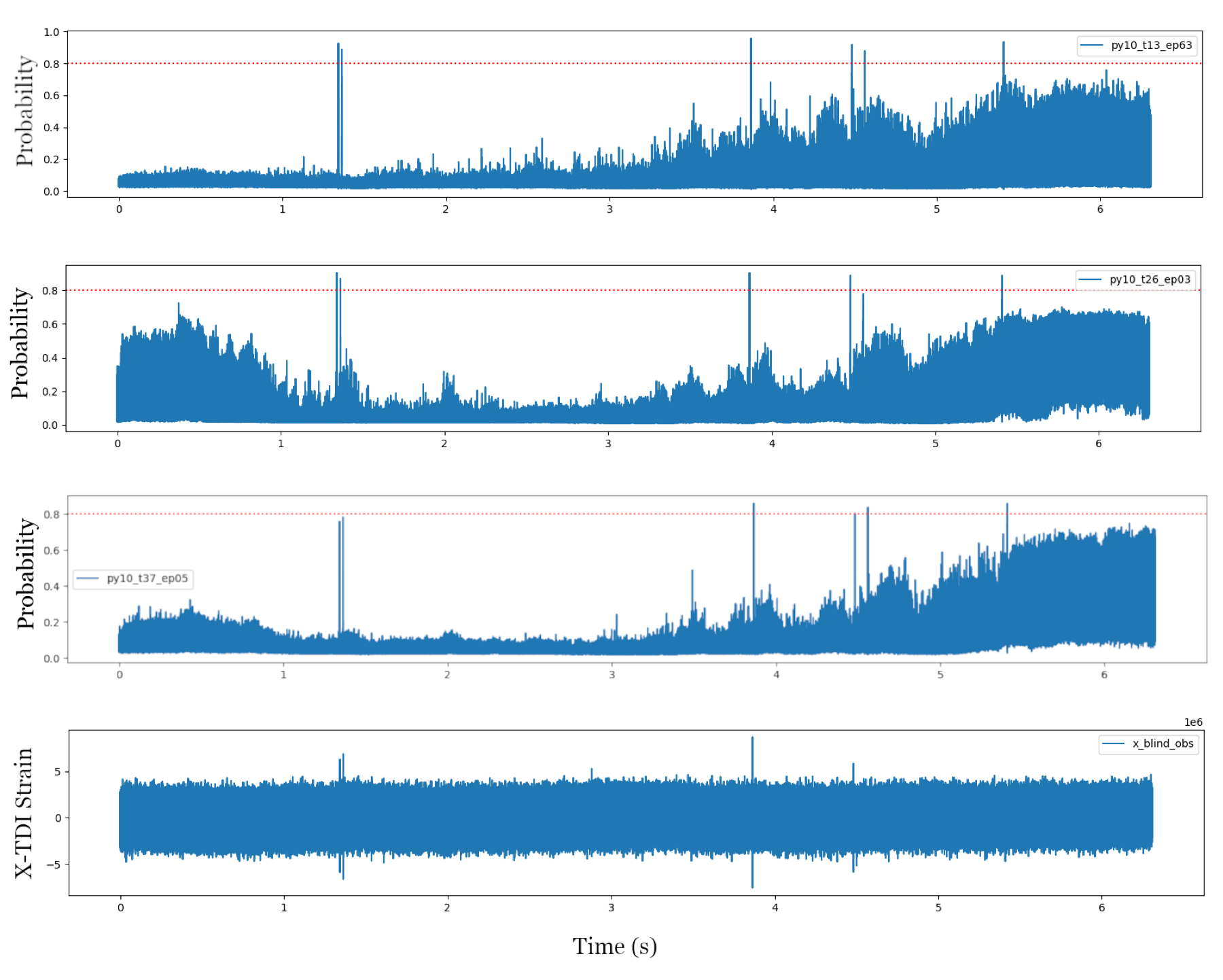Fri, 20 Jan 2023
for gravitational wave data analysis developed by us, that consists of a collection of neural networks and gravitational wave data processing modules meant to fast and accurately detect and characterise gravitational waves from LISA-like data.
For our current purpose to solve the Sangria Data Challenge 2a, we have used the detection module GWEEP.Detect which is a neural network based binary classifier of MBHB events.
The submission is still under evaluation but our first in-house checks showed that we have manage pretty well to detect all the events from the challenge, even the ones very deeply hidden in noise.
In the mean time, we have an even more improved model that has detected the gravitational wave events with even bigger accuracy.
